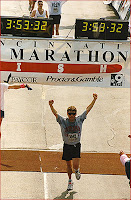We’re installing some new phone lines at the office. Actually, we’re switching out a bunch of expensive ones for some less expensive analog lines. Yes, some people are really going back to analog.
Anyway, I started the process last April., and here we are today – 8 months later – with a technician here hooking things up. Hopefully, everything will work properly. Normally, I would assume hat it would, but not this time. Why? Because communication has been so bad.
The different technicians only know about their piece of the project and they come from different companies. The only person who apparently is supposed to know the whole project is a project coordinator who is conveniently unreachable today, the day when everything was supposed to be coming together.
Each technician asks me questions and I have no answers. Has XYZ happened yet? I don’t know. Who’s bringing and installing the modem? I have no clue.
I’m frustrated. Very frustrated.
It hit me a moment ago, though, that I have experienced this exact same feeling before. I have something to accomplish. It’s my responsibility. No one is going to do it for me. But I don’t have all the information I need to make it happen.
This is exactly the same frustration I feel in my grant writing world when a client hasn’t given me the information I need to complete their proposal. I want to do my job. I really want to complete my task so I can move on to other things, but I’m stuck. I’m stuck waiting for someone else to do their job. They may not think it’s that important, but it’s important to me. It’s the one thing standing between me and success.
The lesson from this for me is that communication really does matter. When someone else needs information from me, I need to be mindful of that and respond accordingly.
We’re all connected in many ways. Information flows between and among us and when it’s flowing, things are good. When it stops flowing, someone can’t do their job and it’s frustrating.
Let’s all do our part to keep it flowing.
*************************
Don’t forget! The GrantGoddess website has had a makeover. Check it out.







